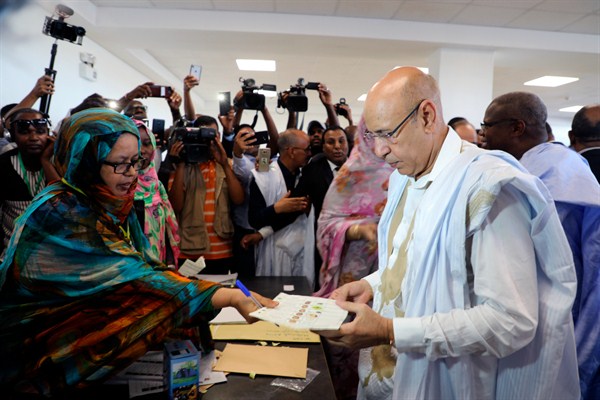It may be the first peaceful transfer of power between elected heads of state since Mauritania won its independence from France in 1960, but the victory by Mohamed Ould Ghazouani in presidential elections on June 22 really represents the latest phase of control by a ruling clique of military officers and businessmen whose influence reaches back to the 1980s. With 52 percent of the vote, Ould Ghazouani—a former defense minister and the handpicked successor of outgoing President Mohamed Ould Abdel Aziz—forestalled a second round, though the opposition claims the results were marred by fraud and is trying to challenge them.
If there was a surprise in Mauritania’s elections, it came not this June but last January, when Ould Abdel Aziz clarified that he would not in fact seek a third term. Banned by the constitution from running again, Ould Abdel Aziz had nevertheless spent years testing the waters. In August 2017, his regime organized a referendum on a slate of issues, from changing the flag to abolishing the Senate. The referendum passed with 86 percent support. The result implicitly empowered the National Assembly, as reconstituted after the referendum, to lift term limits. In September 2018, following his party’s victory in legislative elections, Ould Abdel Aziz mused publicly that “the constitution is not untouchable.”
Ould Abdel Aziz’s elite supporters in the capital, Nouakchott, regularly proclaimed that the country needed him for a third term in order to preserve stability. His Union for the Republic party, or UPR, urged him to run again, as did senior Muslim clerics. Throughout 2018, Ould Abdel Aziz’s demurrals seemed like political theater rather than actual reluctance.

